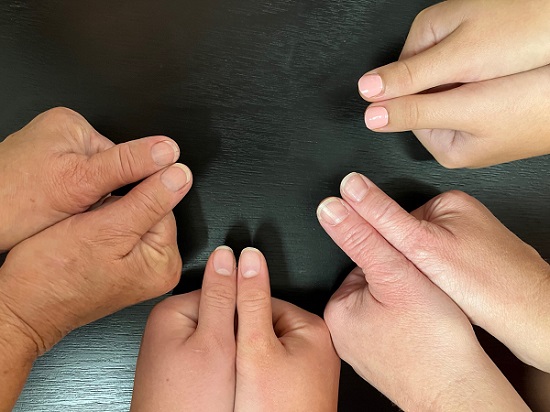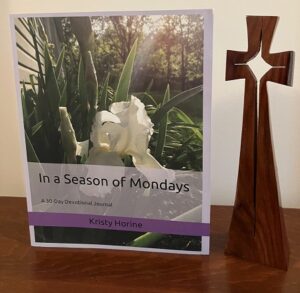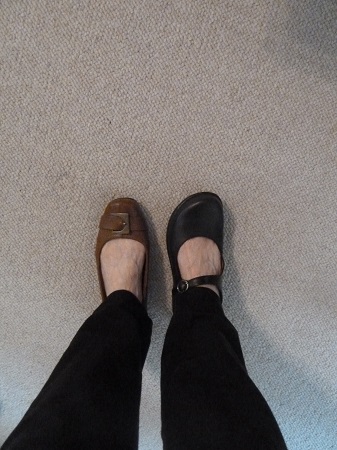All Thumbs
 When we try to do detailed work, many of us become all thumbs. Although texting has made thumbs an important part of daily life, we still prefer not to be all thumbs.
When we try to do detailed work, many of us become all thumbs. Although texting has made thumbs an important part of daily life, we still prefer not to be all thumbs.
All thumbs means clumsy, especially with our hands.
Like a person with two left feet, we have trouble with physical coordination. Awkward and unskilled, we can’t get everything to work together.
We might experience this out-of-whack feeling with:
- Crocheting, knitting, or other needlework
- Playing a musical instrument
- Handwriting, especially calligraphy
- Anything that requires fine motor skills
If all thumbs, we lack grace.
It’s hard to look dignified when we can’t manage our physical reactions. Often, the harder we try, the worse everything grows.
With work, we can usually improve.
That is why we take lessons. Practice may not make us perfect. It does usually make us better.
When we can’t improve, we look for other abilities.
God created each of us with unique skills. If we don’t have certain talents, we can enjoy the work of those who do. We can also grow in what we do best.
I doubt the woman described in Proverbs 31 could do everything. Nevertheless, she did her best at what she did in service to God, her family, and others.
“She is clothed with strength and dignity. Honor her for all that her hands have done, and let her works bring her praise at the city gate” (Proverbs 31:25, 31 NIV).
 Subscribe to receive Diana’s weekly posts by email and receive a free copy of “Words of Hope for Days that Hurt.” On September 9, 2023, one name will be randomly selected from Diana’s mailing list to also receive a free copy of Kristy Horine’s In a Season of Mondays. If your name is already on the mailing list, you are automatically entered. Please encourage your friends to subscribe.
Subscribe to receive Diana’s weekly posts by email and receive a free copy of “Words of Hope for Days that Hurt.” On September 9, 2023, one name will be randomly selected from Diana’s mailing list to also receive a free copy of Kristy Horine’s In a Season of Mondays. If your name is already on the mailing list, you are automatically entered. Please encourage your friends to subscribe.
Do you have an expression you want explained or a thought about this one? If so, please comment.
Thanks to Debbie Tapscott for the suggestion.

 These young archers want to hit the bull’s-eye. They aim for the perfect center of their target.
These young archers want to hit the bull’s-eye. They aim for the perfect center of their target.